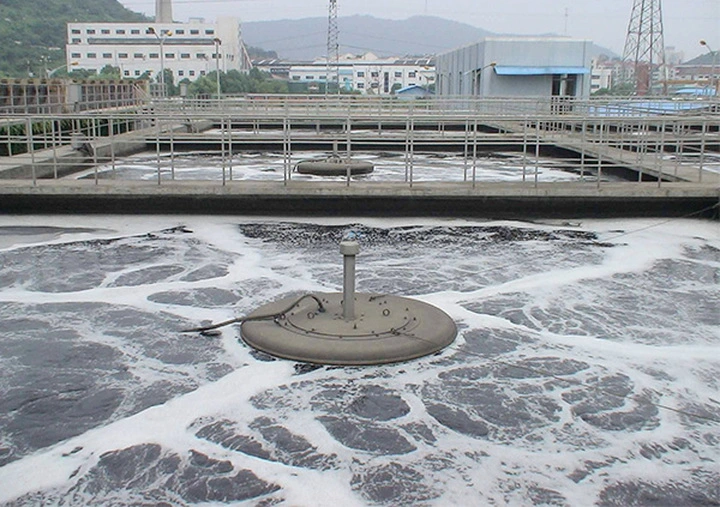
In today’s world, the significance of clean water cannot be overstated. As communities grapple with the challenges of pollution, climate change, and population growth, ensuring water quality has emerged as a critical priority. Investing in advanced water quality sensors is not just about protecting public health; it also presents a range of economic benefits that can foster sustainable development and improve resource management. By harnessing the capabilities of innovative technologies, businesses and municipalities can monitor water quality more effectively, leading to informed decision-making and enhanced operational efficiencies.
Among the key players in this field is BOQU Instrument, a company dedicated to the development and production of water quality analyzers and sensors. Their focus on creating high-quality equipment such as water quality meters, dissolved oxygen meters, and pH sensors underscores the crucial role that reliable monitoring devices play in maintaining safe water standards. By prioritizing the advancement of water quality sensors, we can pave the way towards a future where everyone has access to clean and safe water, while also unlocking significant economic advantages for industries reliant on this vital resource.
Overview of Water Quality Sensors
Water quality sensors play a crucial role in monitoring and analyzing the health of aquatic ecosystems. These devices are designed to measure various parameters that define water quality, including pH levels, dissolved oxygen, turbidity, and other chemical concentrations. By providing real-time data, water quality sensors enable authorities and environmentalists to make informed decisions regarding water management and pollution control.
The development and production of advanced water quality analyzers, such as those by BOQU Instrument, have significantly enhanced the accuracy and reliability of water testing. These sensors are suited for different applications, from industrial facilities needing regular monitoring for compliance to environmental agencies assessing the health of rivers and lakes. The focus on water quality sensors allows for precise measurements that can detect even minute changes in water composition.
Investing in water quality sensors yields significant economic benefits. By ensuring clean water availability, these sensors contribute to public health, reduce treatment costs, and enhance recreational opportunities. Furthermore, they support industries reliant on high-quality water, such as agriculture, aquaculture, and tourism, driving economic growth while promoting environmental sustainability.
Economic Impact on Industries
Investing in water quality sensors has significant implications for various industries, particularly those heavily reliant on clean water for their operations. For agricultural sectors, the use of advanced sensors allows for real-time monitoring of water quality, ensuring optimal irrigation practices and crop health. This not only improves yields but also promotes sustainable farming techniques that can reduce costs associated with fertilizer and pesticide usage.
In the manufacturing and industrial sectors, maintaining water quality is critical to ensure compliance with environmental regulations and reduce waste. Industries that utilize water in their processes can benefit from water quality sensors by monitoring and mitigating contamination risks, leading to a decrease in production downtime and associated financial losses. The ability to detect changes in water quality early can prevent costly recalls and damage to brand reputation.
Furthermore, the implementation of water quality analyzers in municipal water treatment facilities enhances the efficiency of water supply management. By continuously tracking water quality parameters, these facilities can optimize treatment processes and improve the safety of drinking water. This investment not only safeguards public health but can also lead to long-term cost savings by reducing the need for extensive infrastructure upgrades and maintenance.
Environmental Benefits
Investing in water quality sensors significantly contributes to environmental protection by enabling real-time monitoring of water bodies. These sensors provide critical data on various parameters such as pH, dissolved oxygen, and contaminant levels. By identifying pollution sources promptly, industries and municipalities can take proactive measures to mitigate adverse effects on aquatic ecosystems. This capability supports regulatory compliance and fosters a healthier environment. In today’s world, ensuring clean water is essential for sustainable practices, which is why initiatives like Water Quality Monitoring for Agriculture are becoming increasingly important to address the challenges posed by pollution and climate change.
Another key advantage is the role of water quality sensors in promoting sustainable water management practices. With precise measurement tools, stakeholders can better understand the conditions of their water resources and implement strategies to preserve them. For instance, farmers can optimize irrigation practices by monitoring water quality, thus reducing excess runoff that could harm local ecosystems. This not only benefits the environment but also enhances the sustainability of agricultural practices.
Lastly, the deployment of water quality sensors enhances public awareness and engagement regarding water conservation efforts. Communities equipped with access to data can become more informed about their local water quality issues and participate in initiatives aimed at preserving water resources. This collective action fosters a sense of responsibility, leading to more environmentally friendly behaviors and policies that protect vital water supplies for future generations.
Technological Advancements
The landscape of water quality monitoring has evolved significantly with the introduction of advanced sensor technologies. Companies like BOQU Instrument have been at the forefront, focusing exclusively on the development and production of high-precision water quality analyzers and sensors. This dedication has led to significant improvements in the accuracy and reliability of measurements for parameters such as pH, dissolved oxygen, and turbidity. These innovations allow for real-time data collection and analysis, empowering industries to make informed decisions regarding water management and treatment.
Recent advancements in sensor miniaturization and connectivity have also transformed water quality monitoring. Modern sensors are more compact and can be easily integrated into a variety of environments, from industrial systems to remote water bodies. The integration of wireless technology and IoT capabilities enables continuous monitoring and remote access to data, making it easier for stakeholders to track changes in water quality over time. Such technological strides not only enhance data accessibility but also contribute to proactive water resource management.
Furthermore, the development of smart sensors capable of self-calibration and diagnostics has revolutionized the field. These sensors reduce the need for frequent manual calibration and maintenance, decreasing operational costs and downtime. With continuous improvements in sensor technology, the potential for automated monitoring systems to uphold regulatory compliance and ensure public health safety is greater than ever. As companies like BOQU Instrument lead these advancements, water quality sensors are becoming essential tools for sustainable water management across various sectors.
Future Trends in Water Quality Monitoring
As technology evolves, the future of water quality monitoring is poised to integrate advanced sensors that provide real-time data with unparalleled accuracy. Innovations in miniaturization and electronics are leading to compact, affordable sensors that can be deployed in a wider variety of environments, including remote and previously inaccessible locations. Companies like BOQU Instrument are at the forefront of this trend, focusing on the development of sophisticated water quality analyzers that can handle multiple parameters simultaneously, ensuring comprehensive analysis and better decision-making.
The rise of the Internet of Things (IoT) will further revolutionize water quality monitoring. Sensors connected to the internet will enable continuous, remote monitoring of water quality across different ecosystems and urban areas. This connectivity allows for immediate alerts in case of contamination or abnormal readings, facilitating timely interventions. With the integration of cloud computing, stakeholders, from municipal water authorities to individual consumers, will have access to real-time data and historical trends, empowering them to make informed decisions about water safety and management.
Sustainability and environmental awareness will shape future innovations as well. Increasingly, sensors will not only measure water quality but also integrate AI and machine learning algorithms to predict quality changes based on environmental factors. This proactive approach will lead to more efficient water management practices. By investing in cutting-edge water quality sensors and analyzers, companies like BOQU Instrument will play a vital role in promoting sustainable practices that safeguard water resources for future generations.
